Podgorica, 6 December 2017 – The role that civil society plays in the fight against corruption is enormous, was the joint conclusion of participants in the panel discussion “The role of civil society in the fight against corruption”, organised by the Delegation of the European Union and the NGO MANS, with the support of the EU Info Centre and the UK Embassy, as part of Anti-Corruption Week. The overall contribution of the civil sector in the fight against corruption cannot be summed up in one article, therefore these are some of the most important messages:
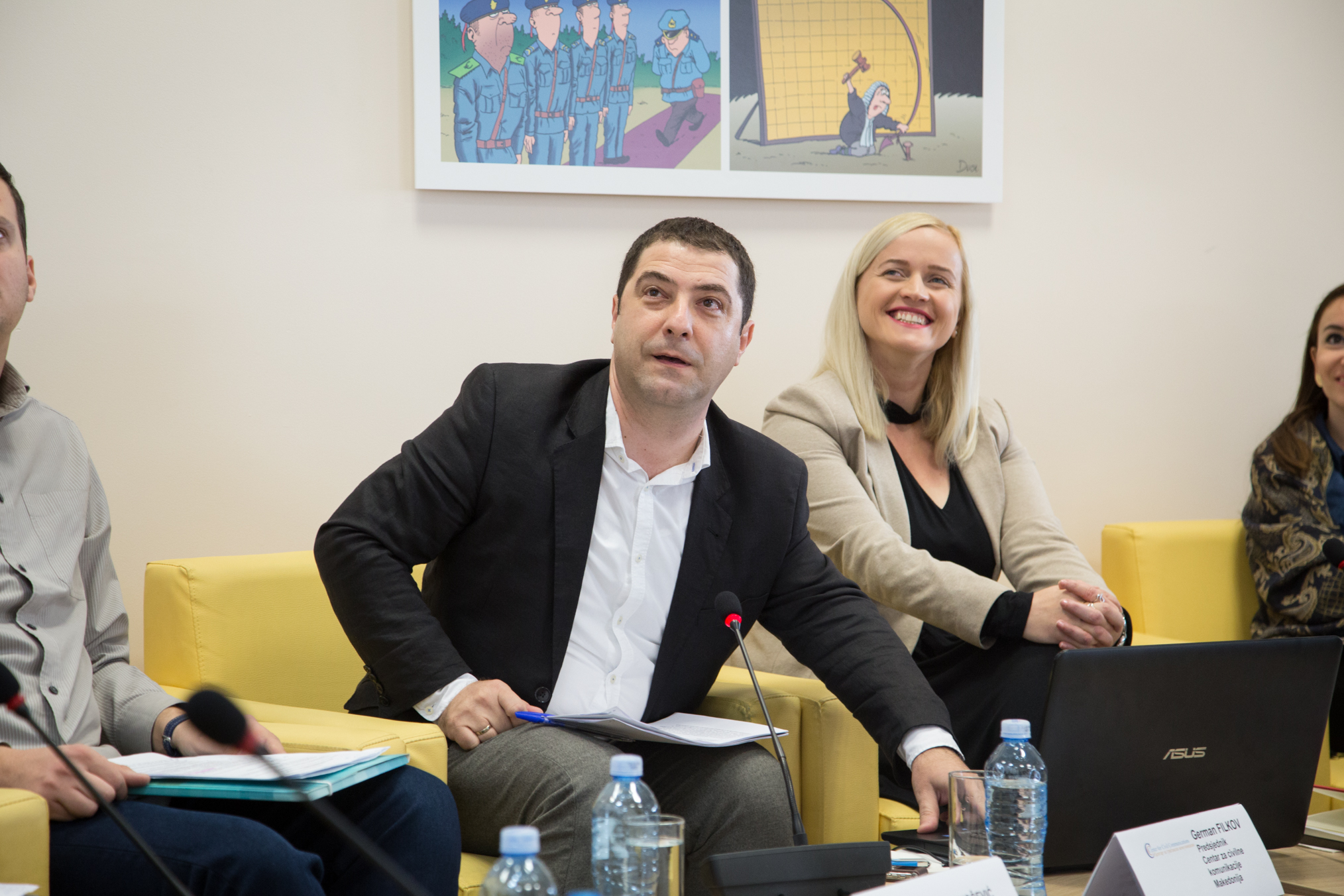 German Filkov, President of the Centre for Civil Communications in FYR Macedonia
German Filkov, President of the Centre for Civil Communications in FYR Macedonia
“In FYR Macedonia the non-governmental sector is dealing with investigations, which is not normal, as this is quite expensive. It is prescribed that the State Commission for the Prevention of Corruption should be doing this. This non-governmental organisation launched the website ‘Skopje 2014’. The state project was to build 40 buildings, and it ended up with 137, and from €100 million the project costs ballooned to €683 million. And the costs are still growing. Here, in one place are all the contracts, all the annexes… This site, as well as ‘bombs’, helped us to uncover large wastefulness by the government. Then the support from donors was bolstered. In such a regime, the expertise and quality of the research had to be at the highest level. For the first time in FYR Macedonia, the government, the European Union and other foreign partners have taken our findings, our recommendations, as a basis for changing laws and for fundamental reforms.”
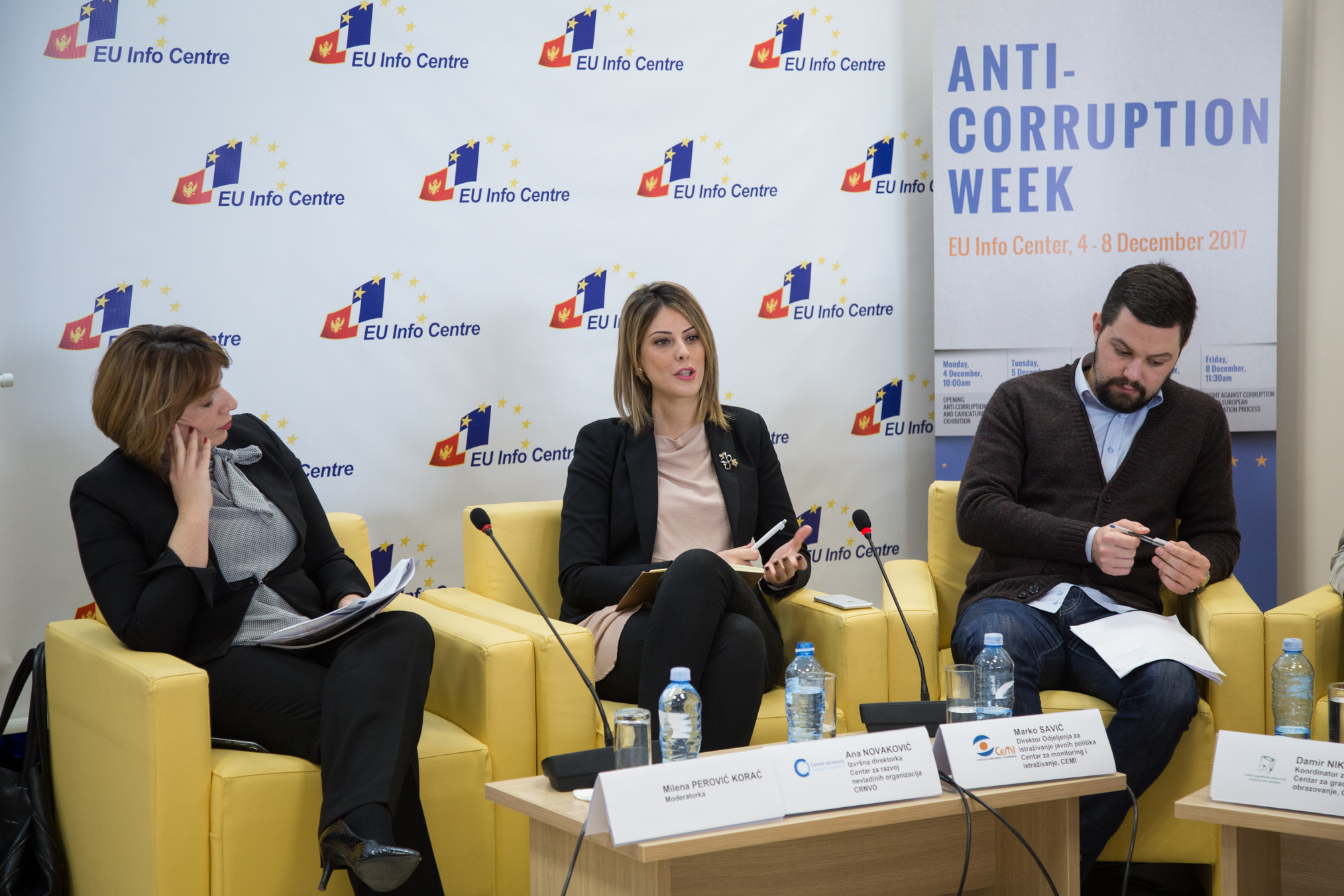 Ana Novaković, Executive Director, NGO Centre for the Development of NGOs
Ana Novaković, Executive Director, NGO Centre for the Development of NGOs
“I think that all organisations in Montenegro which either directly or indirectly deal with corruption issues, have suffered very serious consequences for this, and some are suffering even today. The mechanisms are different. One of them is certainly the placing of things into the operation of media controlled by the authorities. They (the state-controlled media) are known, sometimes in waves, when activists are concerned, or in continuity, to launch crazed, dirty campaigns that are aimed at besmirching the reputation and honour of these activists… The second mechanism is institutions. They deal with various investigative actions that are being instigated against certain NGOs… And regardless of the fact that you know that you are actually clean, and you know that you are doing business in accordance with domestic legislation and the policies of your donors, that type of pressure in which you provide supplementary documentation on a daily basis and when you have visits from representatives of various investigative bodies or inspections, it is logical that this will deter you from your everyday work and job.”
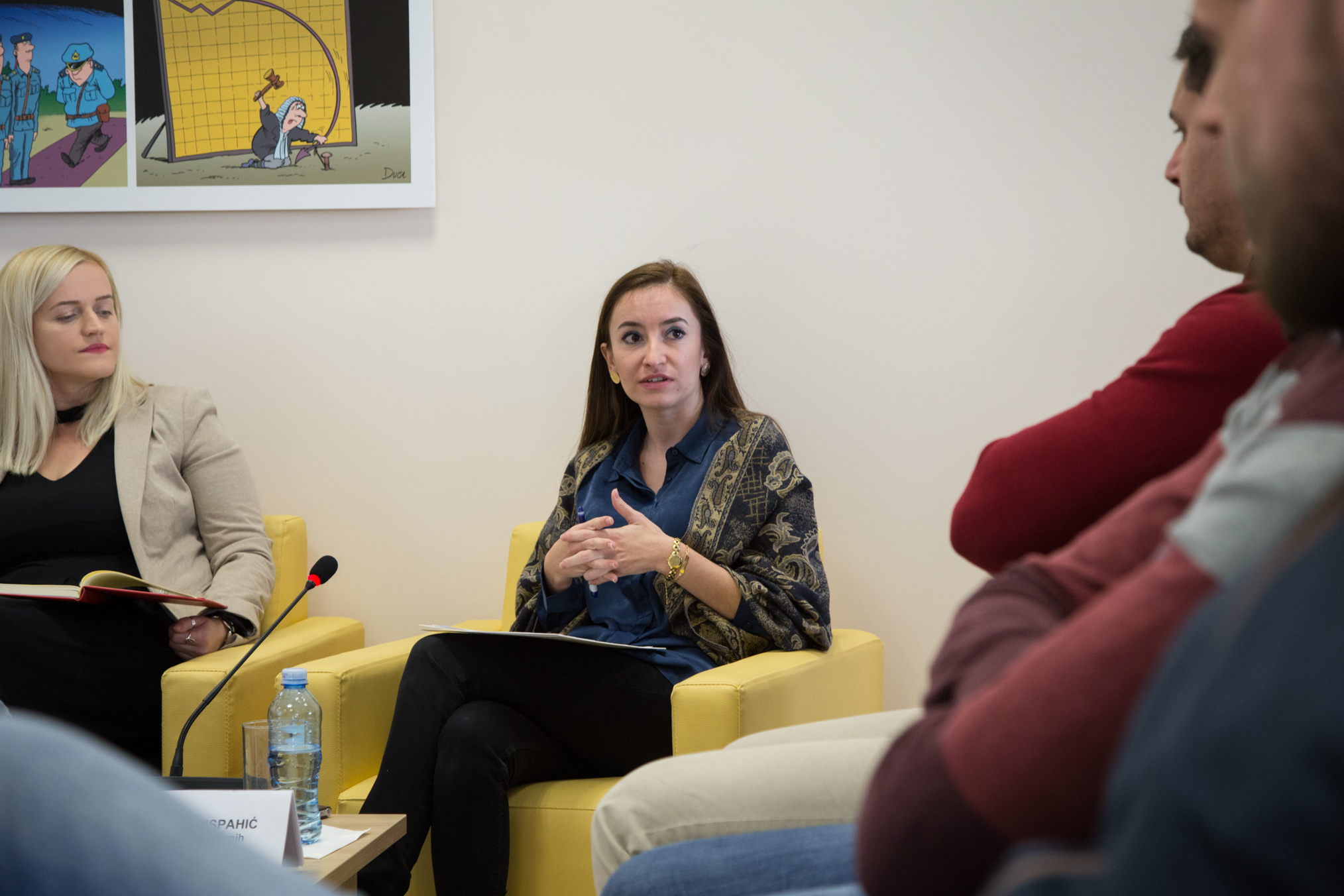 Dina Bajramspahić, Public Policy Researcher, NGO Institute Alternative
Dina Bajramspahić, Public Policy Researcher, NGO Institute Alternative
“Although we think that we have done a lot and that a lot has been done, we are completely honest, open and ready to admit that sometimes it seems to us that our work doesn’t serve its goal – to reduce the risks of corruption. It seems that our work is rather teaching the institutions how better to cover things up. Sometimes it seems to me that they do not read our comments with the intention of improving anything, but, on the one hand, of better concealing the illegalities in their work, and on the other hand to prepare responses for the European Commission to our comments and to try to discredit our criticism. Either this involves attempts to link our work to certain political parties – which is totally unfounded – or they try to deprecate our work by implying that these matters are too complex for NGOs to deal with.”
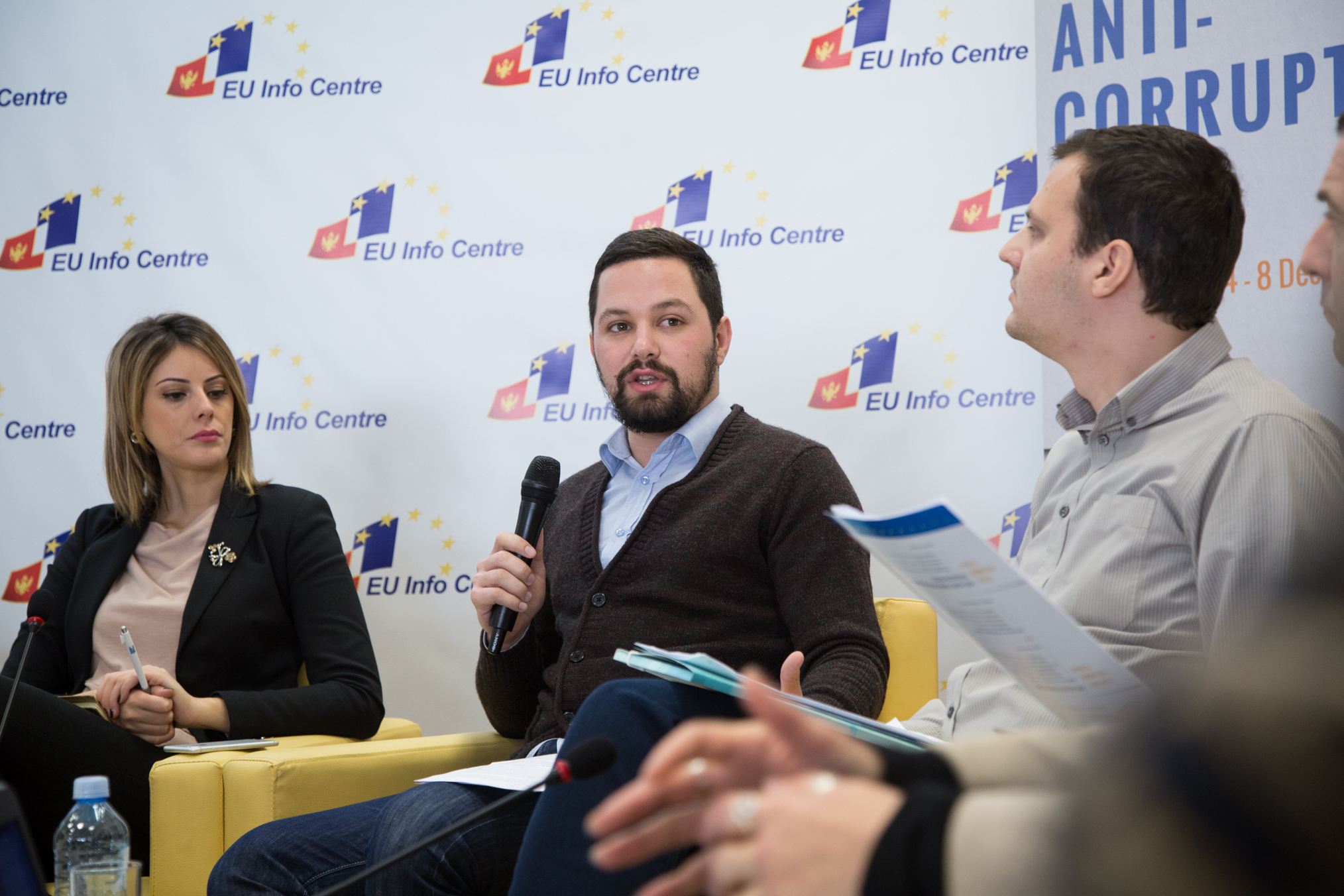 Marko Savić, Director of the Department for Research of Public Policies, NGO Centre for Monitoring and Research
Marko Savić, Director of the Department for Research of Public Policies, NGO Centre for Monitoring and Research
“Unfortunately, the social reality that we live in today, which is that we have prominent party influence on the key institutions in this country, has somehow been copied to the Anti-Corruption Agency. Here I must also include the time when the Agency was being established. I’m referring to the ruling and opposition parties, because in the end we got a completely party-based structure in that little council. And of course, we have written many reports on the personal decisions of the Agency’s director.”
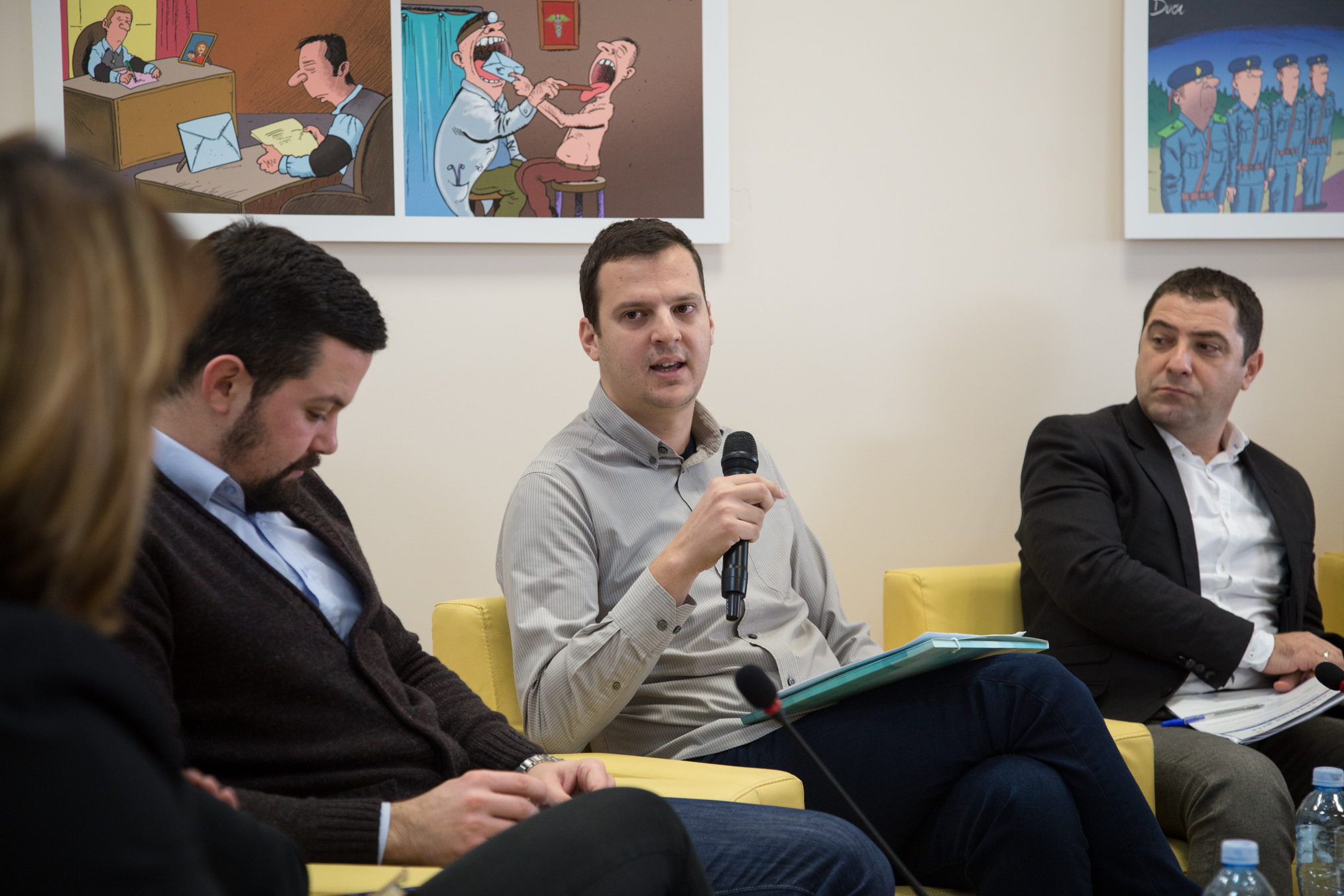 Damir Nikočević, Development Coordinator, NGO Centre for Civic Education
Damir Nikočević, Development Coordinator, NGO Centre for Civic Education
“In all the reports on Montenegro, corruption is presented as a very big problem, and since the start of these assessments, it has been repeated that corruption is everywhere. Efforts, both formal and technical, in terms of forming the Anti-Corruption Agency, are not enough to improve anything in that area. What we must emphasise is that, without political will, without the influence of the individuals who are at the helm of these institutions, we really cannot do anything.”
Zorica Ćeranić, Coordinator of the Monitoring Programme, Network for Affirmation of the NGO Sector
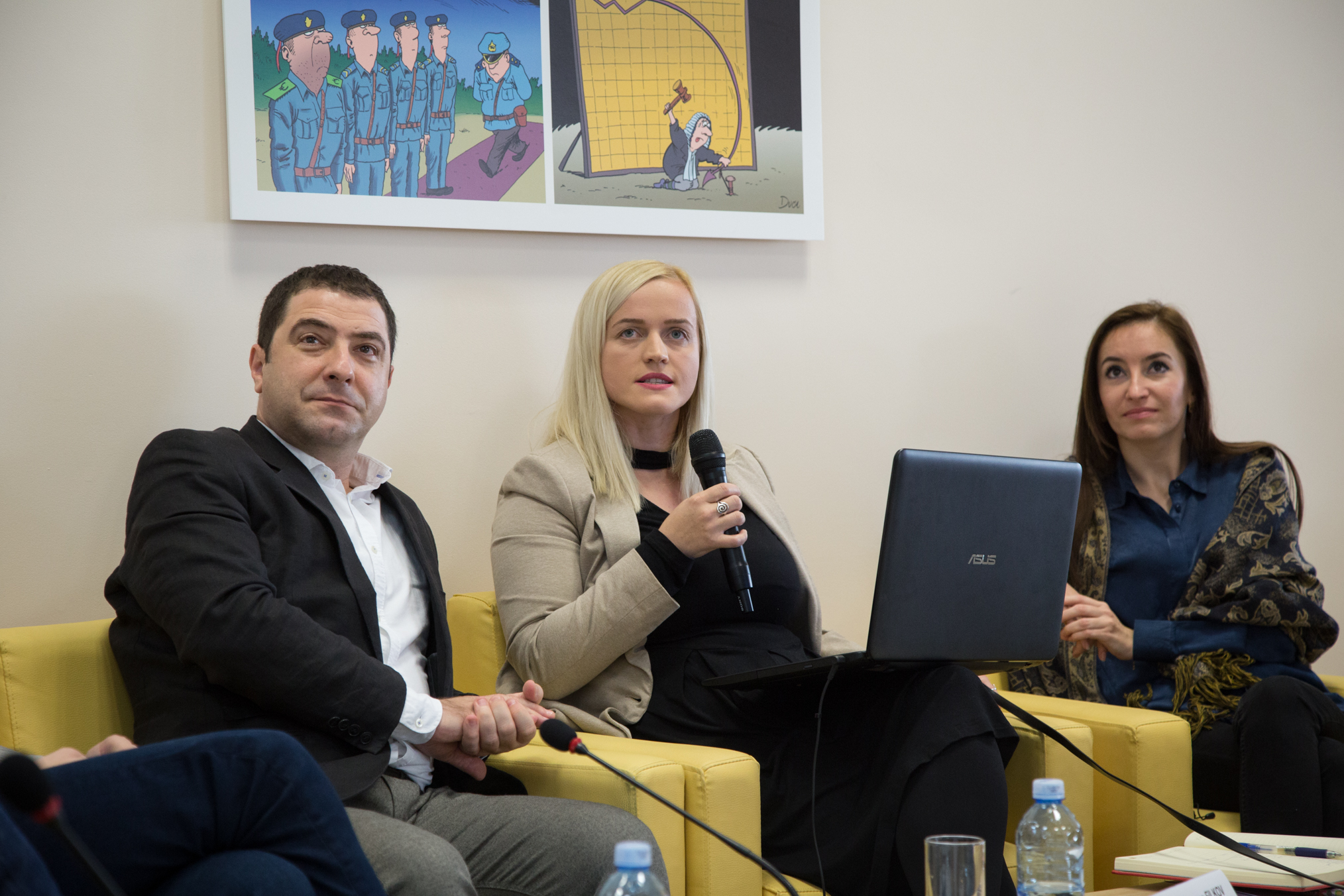 “What is most important to us and what is most popular in the media is monitoring the implementation of the action plan for Chapter 23 and the more than 600 reforms related to the judiciary, corruption and fundamental rights. All the information that we have collected, which is somewhere between three and four thousand responses from institutions, we have published on the site through the database for this chapter. We believe that the information is useful as long as it can be used by other NGOs, the media and citizens. According to some of the most recent information I have, 80% of the prosecution’s cases have not been resolved. This, you must admit, is a large percentage of unresolved cases for any institution, let alone for an institution that is crucial in the fight against corruption and crime.”
“What is most important to us and what is most popular in the media is monitoring the implementation of the action plan for Chapter 23 and the more than 600 reforms related to the judiciary, corruption and fundamental rights. All the information that we have collected, which is somewhere between three and four thousand responses from institutions, we have published on the site through the database for this chapter. We believe that the information is useful as long as it can be used by other NGOs, the media and citizens. According to some of the most recent information I have, 80% of the prosecution’s cases have not been resolved. This, you must admit, is a large percentage of unresolved cases for any institution, let alone for an institution that is crucial in the fight against corruption and crime.”
As part of Anti-Corruption Week, information points for residents of Podgorica have been organised to promote the SOS telephone line for reporting corruption.
